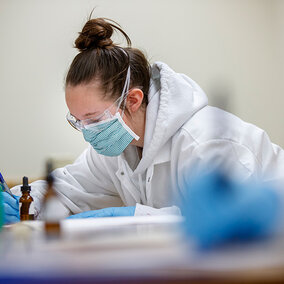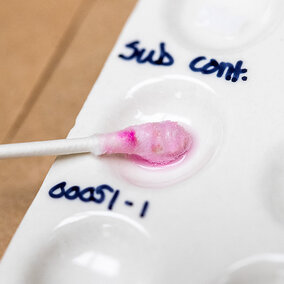
We develop the world’s next great scientists by getting students out of the book and into the lab.
Forensic chemistry is the application of chemistry and chemical methods, using modern analytical equipment, to assist in the identification of unknown materials found at a crime scene. Some examples of forensic chemistry applications include the identification of:
- Illicit drugs or toxins
- Explosives residue (including gunshot residue)
- Synthetic versus natural fibers
Hands on Skills!
In addition to instruction in proper lab techniques and safety, students will also receive hands-on instruction in many lab techniques and methods including:
- Thin layer chromatography
- FTIR
- GC/MS
- Quality assurance/Quality Control (QA/QC)
Successful completion of the curriculum will provide a strong chemistry and science background
